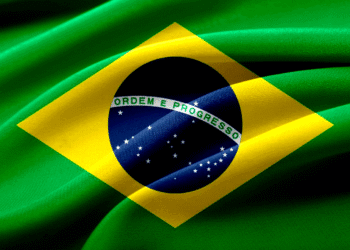Brazil’s government adopted a conciliatory stance on Friday after President Donald Trump announced a 50% tariff on imports from Latin America’s largest economy by stating that the impact on growth would be minimal and expressing willingness to engage in future talks.
During his press conference Trump mentioned that he might have a conversation with Brazilian President Luiz Inácio Lula da Silva who announced his plan to find a diplomatic solution but would take proportional measures if the August 1 tariffs are implemented. Trump expressed his criticism toward Brazil’s judicial system for its handling of former President Jair Bolsonaro while also stating that he might speak with Lula at some point.
Lula declared his intention to find alternative markets for Brazilian exports. The Brasília officials stated that the projected 2.5% economic growth in 2025 will protect the overall economy from the tariffs although aerospace and industrial machinery manufacturing sectors might experience negative impacts.
Brazil sends 12% of its exports to the U.S. market while directing 28% of its exports to China. The Finance Ministry highlighted Brazil’s trade diversification efforts since 2000 which decreased its dependence on U.S. markets.
Still, industry groups are worried. The Brazilian beef industry predicted that U.S. trade restrictions would render their exports economically non-viable. China reacted to the move by calling it coercive and bullying while Washington implemented the tariffs.
Brazil Downplays Tariff Blow, Trump Suggests Talks
Related Posts
© 2025 Newsweek World.
All rights reserved.










